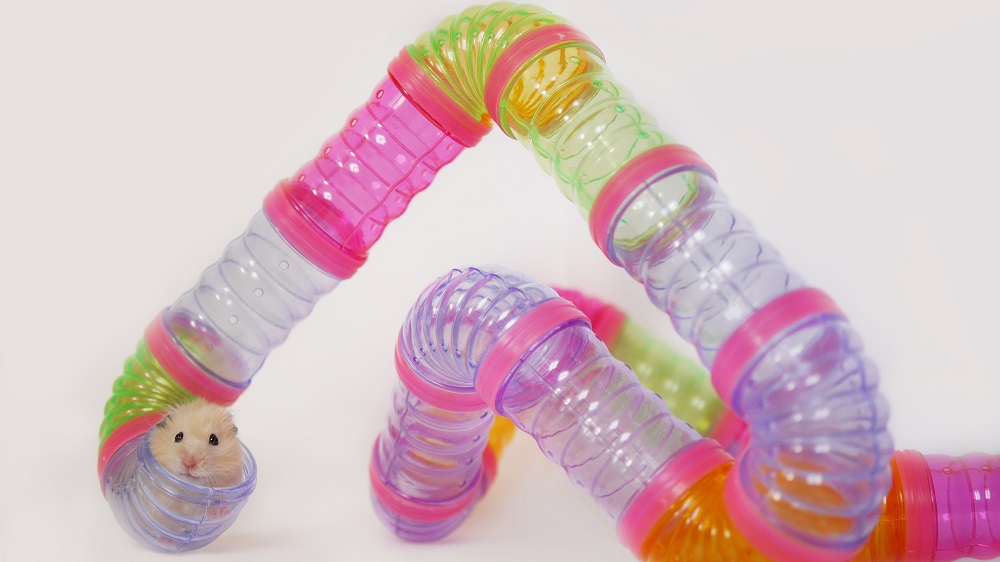A Better Environment May Ameliorate Early Aging
- It might be possible to mitigate disorders caused in the womb.

Publishing in Aging, researchers have reversed the early aging of prenatally harmed young mice by exposing them to a more enriched environment.
Young organisms born old
Newborn rodents from sleep-deprived mothers have conditions that are biologically similar to the processes of aging. One rat study found that maternal sleep deprivation causes these animals to be born with a lack of neuroplasticity [1], the fundamental ability of the brain to learn new things, and a substantial amount of other animal research has corroborated this [2].
These researchers’ previous work has found that this initial damage, which accumulates through the lifespan of animals, can be ameliorated with exposure to a better environment [3]. However, that work did not explain the biochemical reasons why that exposure was effective.
Therefore, this research team has delved deeper into the brain and its workings, attempting to understand how and why environmental exposure can affect the same biological pathways that prenatal stress does.
Improvements across the board
For this experiment, the researchers bred mice and deprived some of their mothers of sleep; other mothers were allowed to sleep as part of a control group. At 21 days, some of the mice born from sleep-deprived mothers were exposed to an enriched environment, which resembles a home for pet mice in which play and socialization are encouraged, rather than the featureless cages used for most mouse experiments. These mice then lived in these environments until they were tested at 18 months old.
In the well-known Morris water maze test, a cognitive test focusing on the ability to seek underwater platforms, the mice born from sleep-deprived mothers performed expectedly poorly compared to unmodified controls. The mice that were given enriched environments, however, performed as well as the mice born from the control group. Both male and female mice seemed to be equally affected by both the maternal sleep deprivation and the environmental exposure.
The researchers then turned their attentions to brain chemistry. First, they focused on oxidative stress, analyzing the levels of reactive oxygen species (ROS) and superoxide dismutase, an antioxidant enzyme. The level of this enzyme was substantially reduced in the mice that were born to sleep-deprived mothers and kept in ordinary cages, and ROS was similarly increased. However, lifelong exposure to a better environment restored those mice to the control group’s level.

The same was also found to be true for known inflammatory factors, including inflammatory cytokines and tumor necrosis factor alpha (TNF-a). As with the oxidative stress, beneficial effects were found across brain regions.
Likewise, multiple proteins that are involved in brain function and metabolism, including neurotransmitter proteins and the well-known sirtuin Sirt1, were reduced with maternal sleep deprivation and restored with lifelong exposure to a better environment, as measured by RNA analysis. The researchers hold that the generation of mitochondria, as reflected by Sirt1, was primarily responsible for the effects on oxidative stress.
A mouse study, but informative
One group that this study lacks is that of mice that were not born to sleep-deprived mothers and were given an enriched environment. This would allow for confirmation that such an environment is, or is not, beneficial to mice as a whole rather than just to mice born under unfavorable circumstances.
Of course, this is also still just a mouse experiment, and it is unethical to perform this sort of experiment on human beings, and it is unknown to what degree various environmental influences have on people. However, it is likely that the lifestyle factors that have been long mentioned as influencing longevity have measurable and substantial effects on the brain and other tissues. It may be feasible to conduct a cohort study to determine such a relationship and determine if a more enriched lifestyle or environment can help people live longer.
Literature
[1] Yu, Y., Huang, Z., Dai, C., Du, Y., Han, H., Wang, Y. T., & Dong, Z. (2018). Facilitated AMPAR endocytosis causally contributes to the maternal sleep deprivation-induced impairments of synaptic plasticity and cognition in the offspring rats. Neuropharmacology, 133, 155-162.
[2] Pires, G. N., Benedetto, L., Cortese, R., Gozal, D., Gulia, K. K., Kumar, V. M., … & Andersen, M. L. (2021). Effects of sleep modulation during pregnancy in the mother and offspring: Evidences from preclinical research. Journal of Sleep Research, 30(3), e13135.
[3] Zhang, Y. M., Wei, R. M., Li, X. Y., Feng, Y. Z., Zhang, K. X., Ge, Y. J., … & Chen, G. H. (2023). Long-term environmental enrichment overcomes depression, learning, and memory impairment in elderly CD-1 mice with maternal sleep deprivation exposure. Frontiers in Aging Neuroscience, 15, 1177250.







